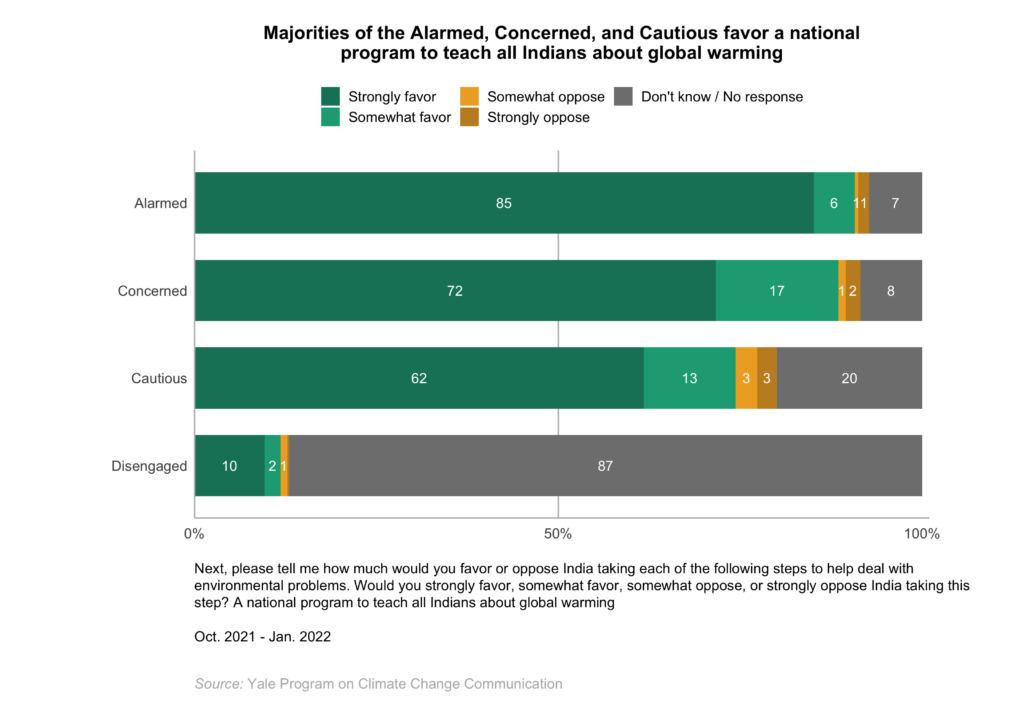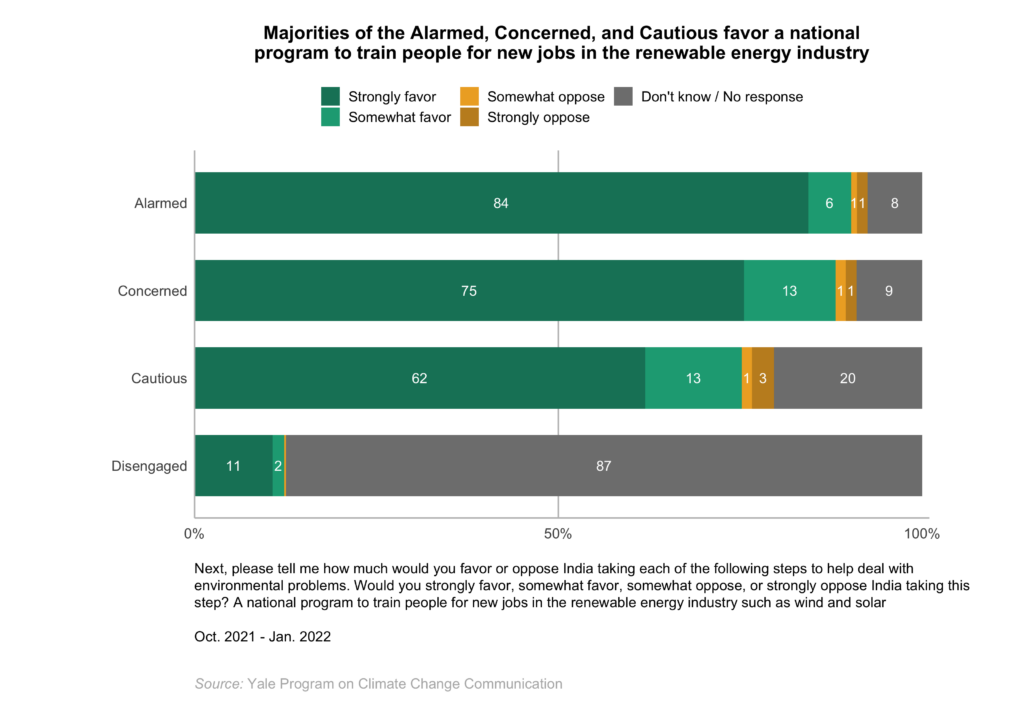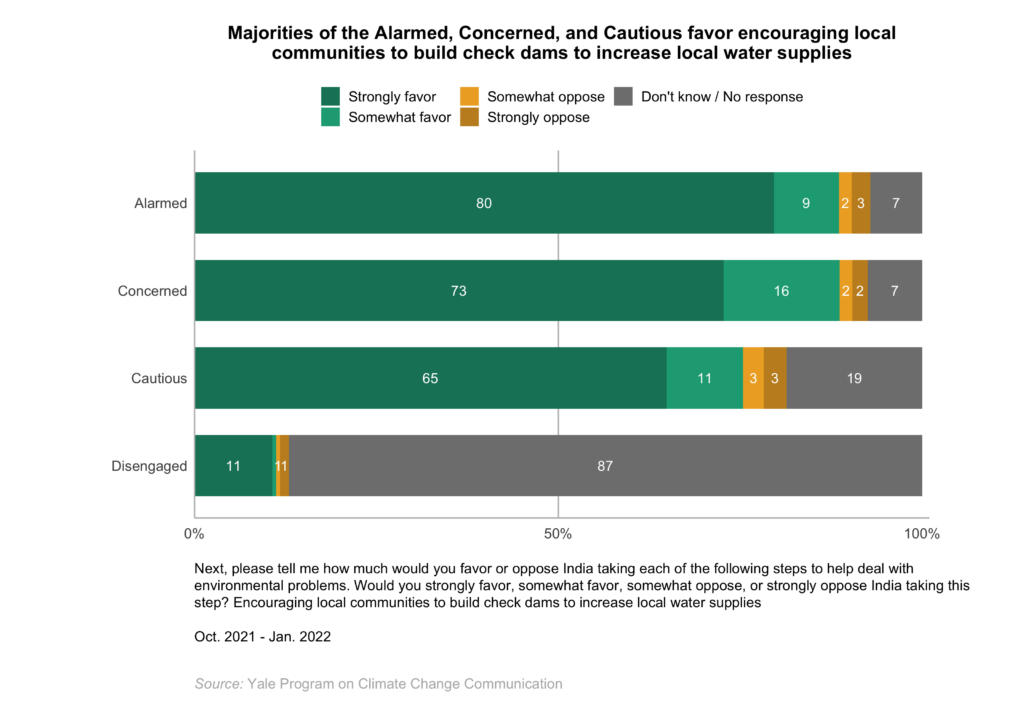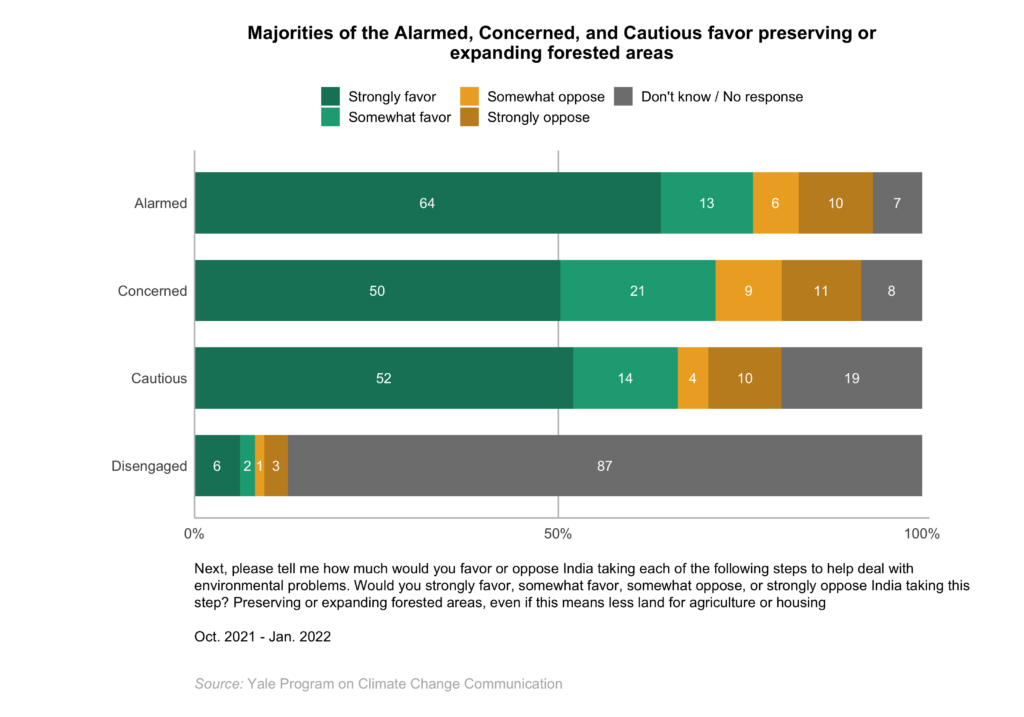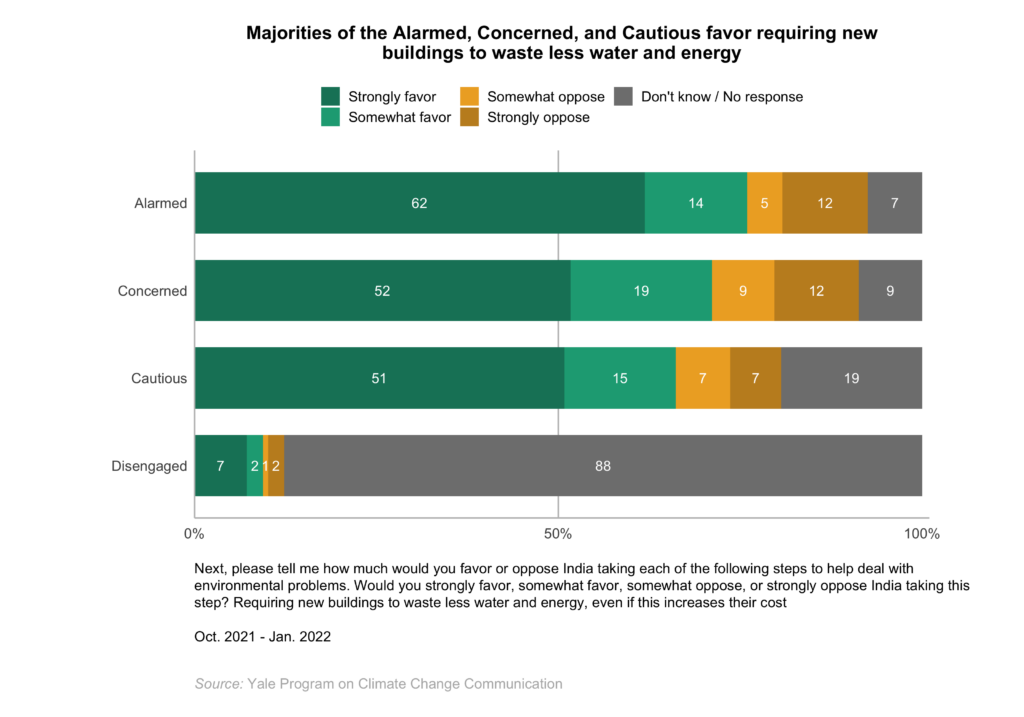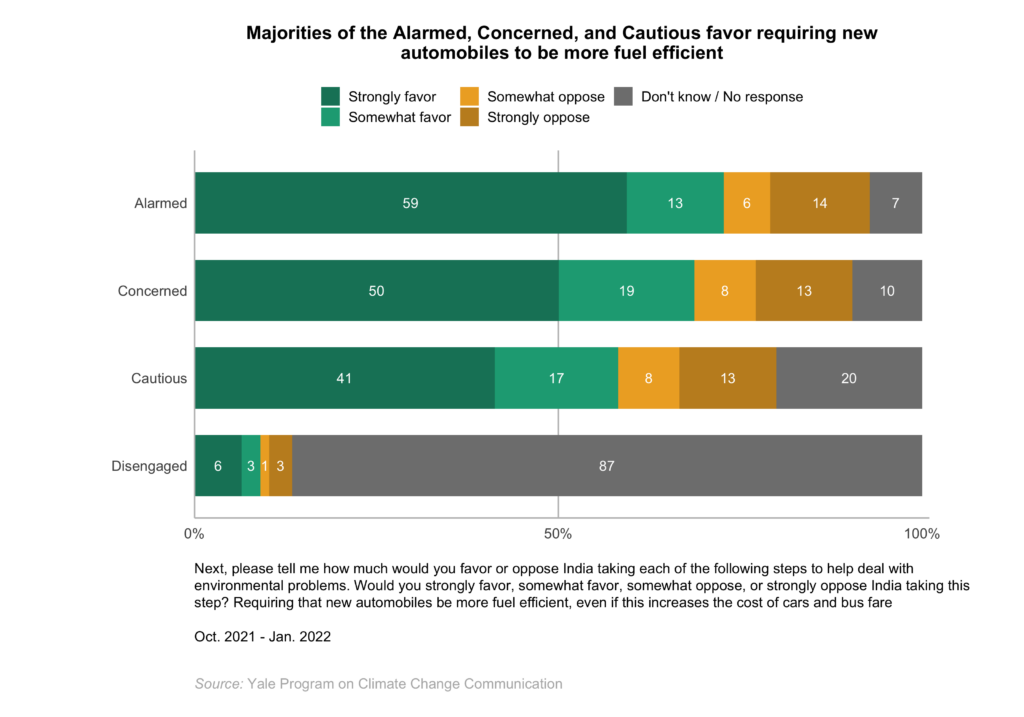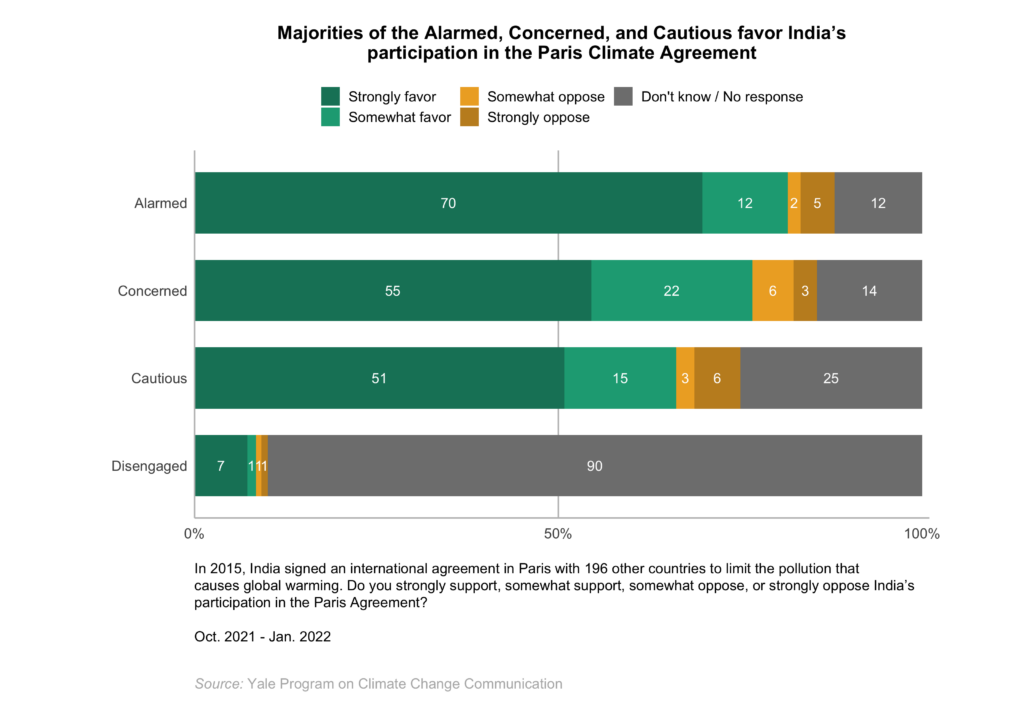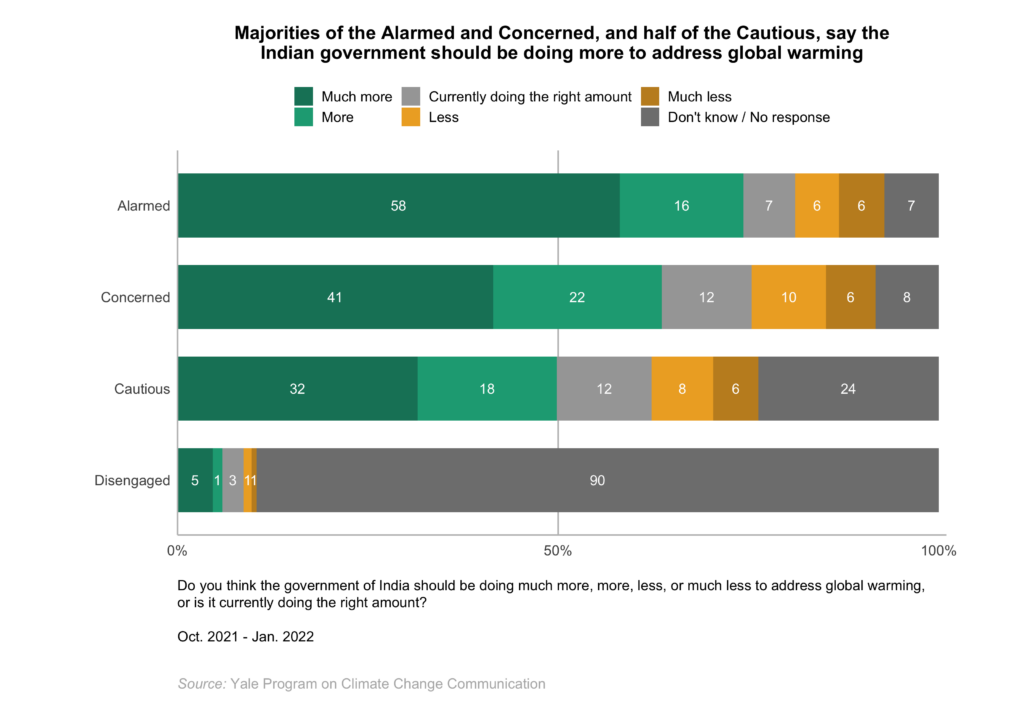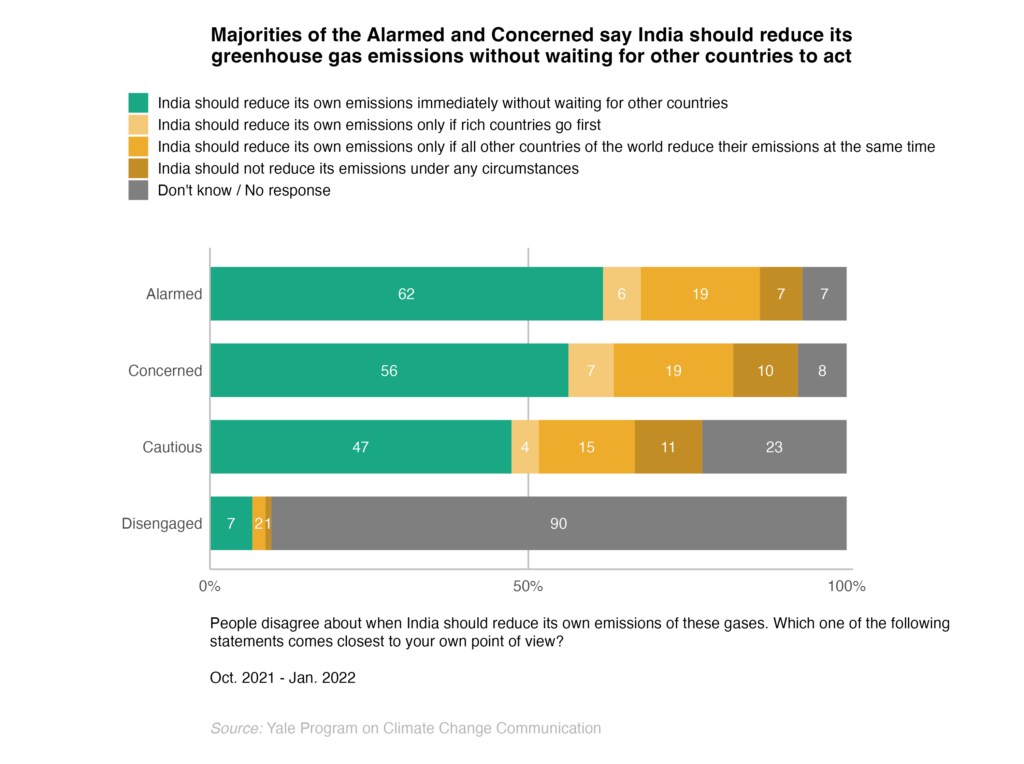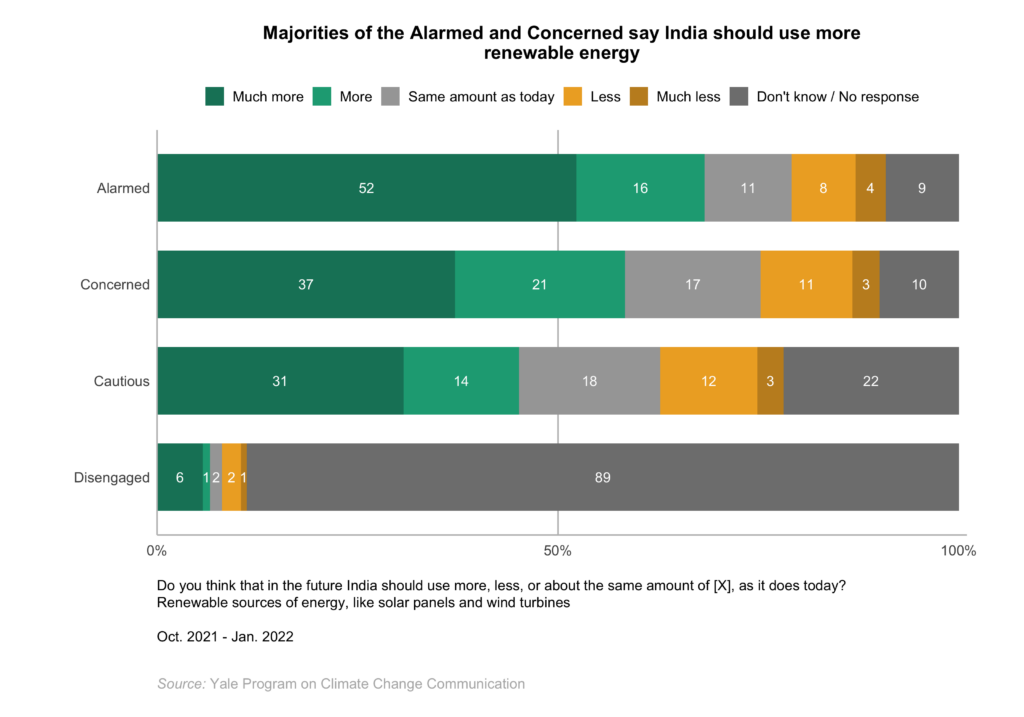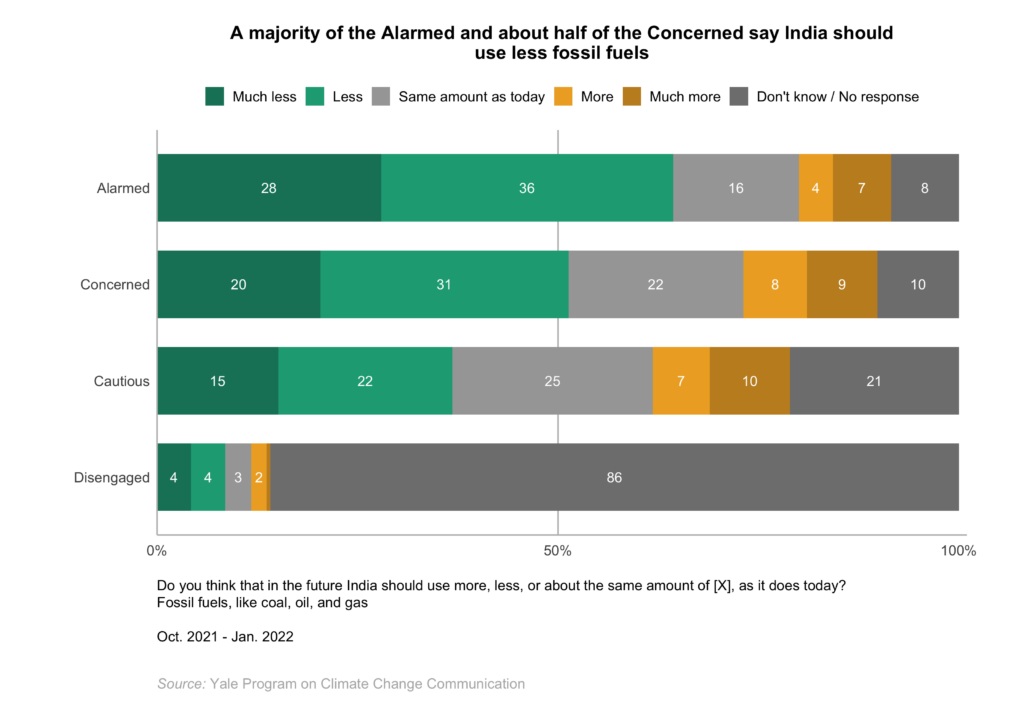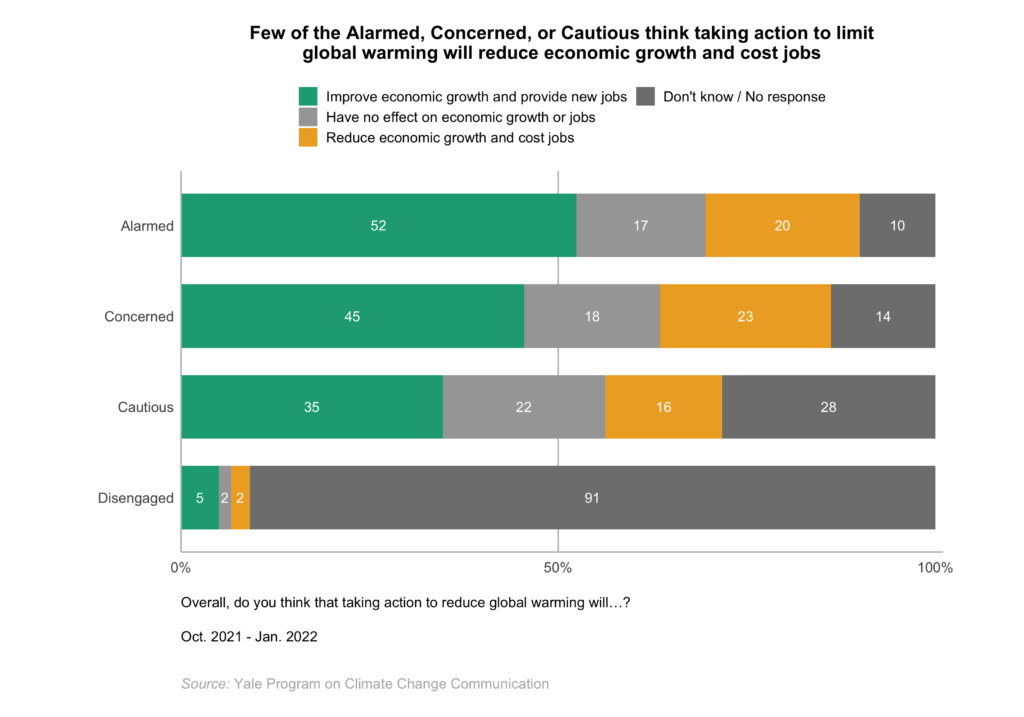Report · May 4, 2023
Global Warming’s Four Indias, 2022: An Audience Segmentation Analysis
By Anthony Leiserowitz, Jagadish Thaker, Matthew Goldberg, Matthew Ballew, Seth Rosenthal, Jennifer Carman, Liz Neyens, Sanguk Lee, Yashwant Deshmukh, Gaura Shukla and Jennifer Marlon
Filed under: Beliefs & Attitudes, Policy & Politics, Behaviors & Actions and Audiences
4. Support for Climate and Energy Policies
Measures of support for climate and energy policies include opinions about policies to address environmental problems, the extent to which India should take action on global warming (e.g., reduce greenhouse gas emissions, use more renewable energy), the economic impacts of taking action, and India’s participation in the Paris Climate Agreement.In December 2015 at the United Nations Climate Change Conference in Paris, officials from 197 countries – nearly every country in the world – negotiated an international agreement to limit global warming. On Earth Day, April 22, 2016, India and 174 other countries signed the Paris Climate Agreement, with the remaining countries signing shortly after. India then deposited its instrument of ratification with the United Nations on October 2, 2016, the birth anniversary of Mahatma Gandhi: https://unfccc.int/news/india-deposits-instrument-of-ratification-of-paris-agreement
Alarmed
The Alarmed are the audience segment most supportive of India taking national action on global warming. Large majorities of the Alarmed either “strongly” or “somewhat” favor climate and energy policies including developing a national program to teach Indians about global warming (91%), developing a national program to train people for renewable energy jobs (90%), encouraging local communities to build check dams to increase local water supplies (89%), preserving or expanding forested areas (77%), requiring new buildings to waste less water and energy (76%), and requiring that new automobiles be more fuel efficient (73%). Additionally, a large majority of the Alarmed (82%) largely favor India’s participation in the Paris Climate Agreement, including 70% who “strongly favor” it.
About three in four of the Alarmed (74%) say the Indian government should be doing either “much more” (58%) or “more” (16%) to address global warming, and about six in ten (62%) say India should reduce its greenhouse gas emissions immediately without waiting for other countries to act. The Alarmed are also most supportive of India’s transition to renewable energy – majorities say India should use more renewable energy (68%, including 52% who say “much more”) and less fossil fuels (64%, including 28% who say “much less”). About half of the Alarmed (52%) also think taking action to limit global warming will improve economic growth and provide new jobs, while fewer (20%) think it will reduce economic growth and cost jobs.
Concerned
Similar to the Alarmed, majorities of the Concerned also support national action on global warming, but to a lesser extent. Large majorities of the Concerned either “strongly” or “somewhat” favor climate and energy policies, including encouraging local communities to build check dams to increase local water supplies (89%), developing a national program to teach Indians about global warming (88%), developing a national program to train people for renewable energy jobs (88%), preserving or expanding forested areas (72%), requiring new buildings to waste less water and energy (71%), and requiring that new automobiles be more fuel efficient (69%). A large majority of the Concerned (77%) also favor India’s participation in the Paris Climate Agreement, including 55% who “strongly favor” it.
A majority of the Concerned (64%) say the Indian government should be doing either “much more” (41%) or “more” (22%) to address global warming, and that India should reduce its greenhouse gas emissions immediately without waiting for other countries to act (56%). The Concerned are supportive of India’s transition to renewable energy, although less so than the Alarmed – a majority of the Concerned (58%) say India should use more renewable energy than it does today (including 37% who say “much more”), and about half (51%) say India should use less fossil fuels (including 20% who say “much less”). A plurality of the Concerned (45%) think taking action to limit global warming will improve economic growth and provide new jobs, while fewer (23%) think it will reduce economic growth and cost jobs.
Cautious
The Cautious are less supportive than the Alarmed and Concerned of national action on global warming. However, majorities of the Cautious still either “strongly” or “somewhat” favor climate and energy policies, including encouraging local communities to build check dams to increase local water supplies (75%), developing a national program to train people for renewable energy jobs (75%), developing a national program to teach Indians about global warming (74%), preserving or expanding forested areas (66%), requiring new buildings to waste less water and energy (66%), and requiring that new automobiles be more fuel efficient (58%). Furthermore, two-thirds (66%) of the Cautious favor India’s participation in the Paris Climate Agreement, including 51% who “strongly favor” it.
Half (50%) of the Cautious say the Indian government should be doing either “much more” (32%) or “more” (18%) to address global warming, and more than four in ten (47%) say India should reduce its greenhouse gas emissions immediately without waiting for other countries to act. The Cautious are less supportive of India’s renewable energy transition than are the Alarmed and Concerned – 45% of the Cautious say India should use more renewable energy than it does today (including 31% who say “much more”) and 37% say India should use less fossil fuels (including 15% who say “much less”). The Cautious are less certain than the Alarmed and Concerned about the economic impact of taking action to limit global warming – about one in three Cautious (35%) think taking action will improve the economy, while 16% think it will harm the economy, 22% think it will have no effect, and 28% say they don’t know or did not respond.
Disengaged
Of the four segments, the Disengaged are the least likely to support national action on global warming in India, and are the most likely to say they don’t know or to not express an opinion (ranging from 86% to 91% across questions). Few of the Disengaged either “strongly” or “somewhat” favor climate and energy policies, including developing a national program to train people for renewable energy jobs (12%), developing a national program to teach Indians about global warming (12%), encouraging local communities to build check dams to increase local water supplies (11%), requiring new buildings to waste less water and energy (9%), requiring that new automobiles be more fuel efficient (9%), and preserving or expanding forested areas (8%). Only 8% of the Disengaged say they either “strongly” or “somewhat” favor India’s participation in the Paris Climate Agreement.
Very few (6%) of the Disengaged say the Indian government should be doing more to address global warming. Additionally, only 7% say India should reduce its greenhouse gas emissions immediately without waiting for other countries to act. Similarly, only 7% say India should use more renewable energy than it does today, and only 9% say it should use less fossil fuels. Only 5% of the Disengaged think taking action to limit global warming will improve economic growth and provide new jobs.
